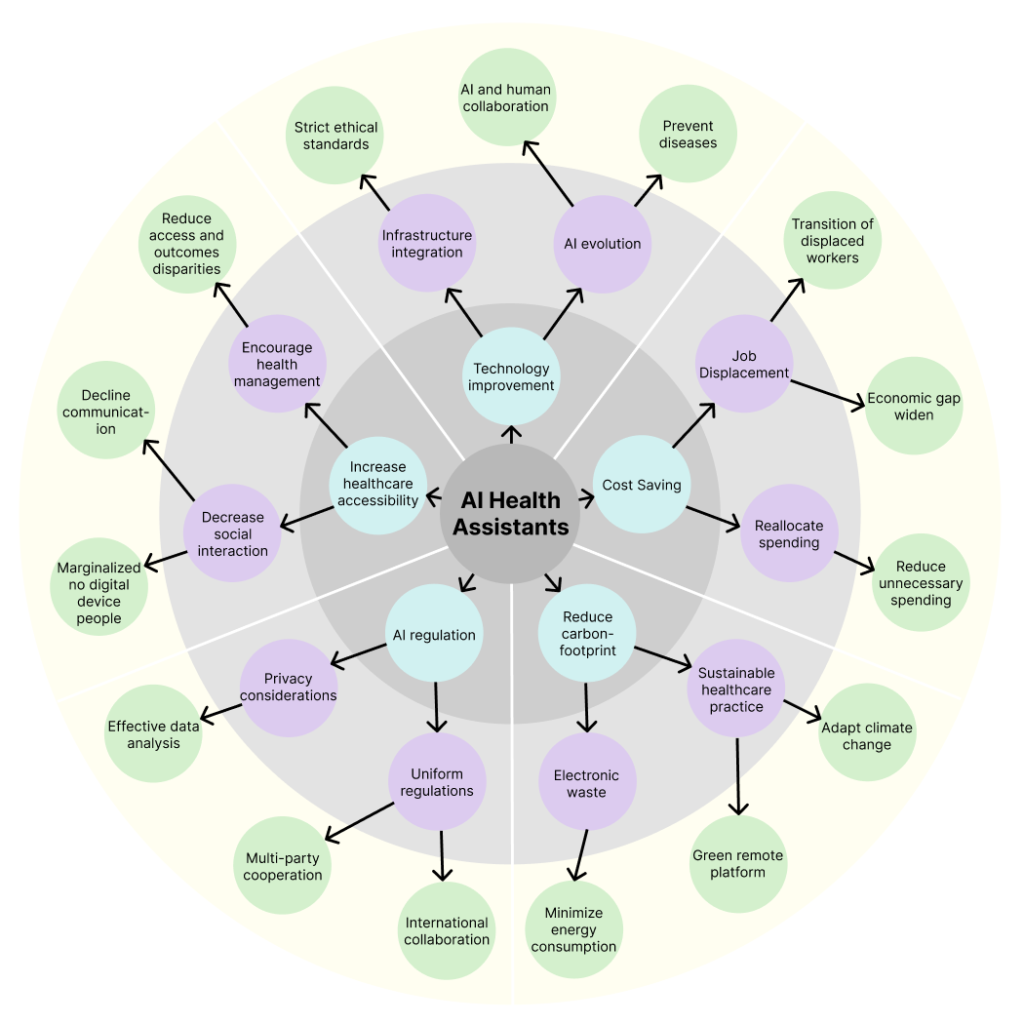
Technological Opportunity: Through the technological improvement, AI technology will usher in a new evolution, in terms of medicine, human and AI can have a further cooperation, which can save a lot of time at the same time in the accurate, to avoid missing the golden time of medical treatment. In the future, AI may also have the function of prediction, after the prediction of disease can be the first time to take measures to avoid proliferation.
Technological Risk: Because AI still can not be completely with human beings have the so-called emotional and moral considerations, and in the medical side will often be with personal feelings, which leads to it is difficult to define AI should be completely abide by the rules or should be appropriately loose, in the moral and ethical aspects of this is very difficult to clearly under the command.
Economic Opportunity: Because of the replacement of certain positions, AI can help a hospital or organization save a lot of unnecessary overhead, which can then be reprogrammed for more important uses.
Economic Risk: Of course, AI replacing human jobs will undoubtedly cause a lot of people to lose their jobs, and those people will have to find alternative jobs to earn income, otherwise this will lead to social unemployment as well as the gap between the rich and the poor greatly increased.
Environmentally Opportunity: The use of telemedicine, or remote platform, will reduce a large portion of the carbon footprint, which is very friendly to the Earth’s environment and the climate change problem that is so serious right now.
Environmentally Risk: Although the carbon footprint is reduced, the use of AI devices inevitably creates a lot of electronic waste, so at the same time it is necessary to come up with ways to minimize energy pollution.
Political Opportunity: In the case of harmonizing the use of AI Health Assistants, it is also necessary to harmonize the regulations of each country, so that it is easy to lead to multi-institutional as well as international cooperation to make the development of medicine go further.
Political Risk: In some emergency or special cases, the patient’s personal information needs to be known by the medical staff or family members, which brings us back to the ethical question, if there is a sudden emergency, does the AI need to disclose the patient’s privacy or should it be set to keep all the information confidential no matter what? Again, this is very difficult to define.
Social Opportunity: Increased health care accessibility makes patients more aware of and motivated to manage their health, and it reduces the access and outcome disparities.
Social Risk: With the use of the AI Health Assistant, the patient’s interaction with the outside world and other people is greatly reduced, which may lead to a subsequent decrease in their trust and communication with their healthcare providers. At the same time, those with limited contact with technology or electronic devices will be even more marginalized.